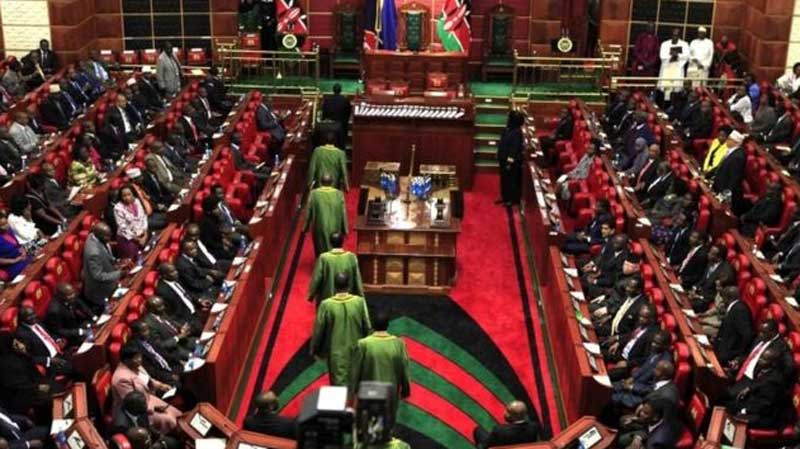
The drama witnessed in Parliament over the fuel tax was, for all practical purposes, a storm in a teacup.
Though many MPs appeared to finally take a decisive stand in solidarity with Wanjiku over her economic plight, the truth and reality is that their fight was, knowingly or unknowingly, misdirected.
The amendment Bill that the President rejected had simply provided for a deferment of the then proposed 16 per cent VAT on fuel by a further two years, after a similar suspension two years ago lapsed.
Generally, two years is a fairly short period; and when it comes to deferred pain, it arrives rather quickly. Thus, the serpent would have been back in a twinkle, ready for a venomous attack on poor Wanjiku.
Sadly, ours seems to be a case my mother’s people would refer to as thuol odonjo e ko (the snake has entered into the milk gourd). The English may term it as being caught between a rock and a hard place.
On the one hand, the government needs every coin it can get to provide us with the services we desperately need. On the other hand, it is clear that punda amechoka kabisa!
Seriously speaking, the tax burden is way beyond what Kenyans can bear. This is a fact that we cannot simply wish away or play political games with. Instead, it presents us with tough choices and calls for Solomonic wisdom by our leaders.
Fighting over fuel tax was therefore not the best way for our leaders to expend their physical or intellectual energy. In the end, there were no winners – only losers. Ultimately, it was a scuffle over the rabbit while the elephant stood right before their eyes.
Sober Kenyans seem to agree that the elephant in the room has two tusks – corruption and structure of government. Unless and until as a nation we take the hard decision to deal with the two, our woes are going to get only worse.
The impact of extensive and endemic corruption on our economy needs no exposition. It is felt in every aspect of our daily lives. Unfortunately, while we celebrate the ongoing fight against corruption initiated and backed by the President, many of us appear not to have moved an inch.
Reports of continuing corrupt deals, both big and small, seem to indicate that our corruption culture is too deep-rooted to be shifted by merely seeing a few people hauled into the courts. On this one, however, no government leader or agency can help us.
Every one of us must come to terms with the fact that this nation is going to collapse unless we stop giving and receiving illicit money, no matter how big or small. The President, EACC or DPP cannot police all of us. On the structure of government, many of us have shouted our voices hoarse about the need to review the elaborate structure of government as provided for by the 2010 Constitution.
Just over two years ago, the then Budalang’i MP Ababu Namwamba drafted a parliamentary Bill proposing drastic measures to tame the runaway national wage bill.
A year earlier, one Eric Orina petitioned Parliament to review several provisions of the new Constitution and reduce the size of government.
Stay informed. Subscribe to our newsletter
More recently, religious leaders presented a radical list of austerity measures that must be taken in order to reduce the cost of governing Kenya.
Among the proposals by the clergy was the reduction of the number of constituencies to 150 and the scraping of provincial administration.
Other voices, including that of yours truly, have been included on the list for the reduction of the number of counties to between 10 and 15. The commissions have equally been an area of concern.
But, just like in the case of corruption, Kenyans will have to make the hard decision to accept that the current structure of government is good but not a must-have. The cost of running this government, even without the theft of funds, requires substantial amounts of resources.
A large number of government employees are unhappy with their current levels of pay, no wonder the innumerable strikes that consistently disrupt operations.
Therefore, a significant amount of money will need to go into paying for national and county operations.
There is therefore no way we are going to develop our infrastructure without heavy taxation and/or borrowing – words that have become anathema to every Kenyan ear.
Hence, if our leaders truly love Wanjiku, let them tackle the elephant in the room.
- The writer is the Presiding Bishop of Christ is the Answer Ministries. [email protected]
 The Standard Group Plc is a
multi-media organization with investments in media platforms spanning newspaper
print operations, television, radio broadcasting, digital and online services. The
Standard Group is recognized as a leading multi-media house in Kenya with a key
influence in matters of national and international interest.
The Standard Group Plc is a
multi-media organization with investments in media platforms spanning newspaper
print operations, television, radio broadcasting, digital and online services. The
Standard Group is recognized as a leading multi-media house in Kenya with a key
influence in matters of national and international interest.
 The Standard Group Plc is a
multi-media organization with investments in media platforms spanning newspaper
print operations, television, radio broadcasting, digital and online services. The
Standard Group is recognized as a leading multi-media house in Kenya with a key
influence in matters of national and international interest.
The Standard Group Plc is a
multi-media organization with investments in media platforms spanning newspaper
print operations, television, radio broadcasting, digital and online services. The
Standard Group is recognized as a leading multi-media house in Kenya with a key
influence in matters of national and international interest.










